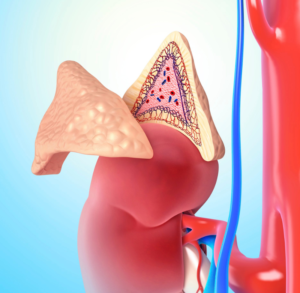Section 7f: Endocrine – Hypoadrenal

Anatomy and Physiology
The adrenal glands, situated on top of each kidney, are integral to the endocrine system, producing hormones like cortisol and adrenaline. Hypoadrenalism, or an underactive adrenal gland, results in insufficient secretion of these hormones, impacting the body’s stress response and various physiological functions.
Importance to Overall Health
Maintaining balanced adrenal function is crucial for responding to stress, regulating metabolism, and supporting immune function. Hypoadrenalism can lead to a weakened stress response, affecting energy levels and immune system resilience. Identifying and managing hypoadrenalism is essential for preventing complications and maintaining overall endocrine equilibrium.
Dysfunction
Hypoadrenalism can result from conditions like Addison’s disease, autoimmune disorders, or prolonged exposure to chronic stress. Symptoms may include fatigue, weight loss, low blood pressure, and difficulty handling stress.
Nutritional Component
- Cortisol Synthesis: The adrenal cortex produces cortisol, a hormone that regulates metabolism, immune response, and the stress response. Nutrients such as vitamin C, B-vitamins, and adaptogenic herbs influence cortisol synthesis.
- Adrenaline Production: The adrenal medulla releases adrenaline, a hormone that prepares the body for the “fight or flight” response. Nutritional factors, including amino acids and certain minerals, play a role in adrenaline production.
Science Behind Nutritional Influence
Nutrients and dietary choices significantly impact the nutritional biochemistry of the hypoadrenal endocrine system:
- Vitamin C: Essential for adrenal function and the synthesis of cortisol. Citrus fruits, strawberries, and bell peppers are good sources of vitamin C.
- B-Vitamins: Play a role in energy metabolism and support the adrenal glands. Whole grains, meat, and leafy greens are rich in B-vitamins.
- Magnesium: Involved in the regulation of cortisol release and supports overall adrenal health. Nuts, seeds, and leafy greens are good sources of magnesium.
- Adaptogenic Herbs: Such as ashwagandha and rhodiola, may help modulate the stress response and support adrenal function.
- Amino Acids: Building blocks of proteins, amino acids are crucial for hormone synthesis. Protein-rich foods like meat, fish, and dairy contribute to amino acid intake.
Supplements
Explore the potential benefits of glandular supplements tailored to your individual health profile by setting up a free 10 minute call with Dr. Kneessi. Otherwise here are some of the most common supplement recommendations for supporting this system. These supplements are mostly the same as the nutrients listed above.
- Vitamin C: Supports adrenal function and helps manage stress.
- B-vitamins (especially B5 and B6): Play a role in adrenal hormone synthesis.
- Magnesium: Assists in relaxation and may alleviate the impact of stress on the adrenal glands.
- Licorice Root: Known for its potential to support adrenal health.
- Adaptogenic Herbs (e.g., Ashwagandha, Rhodiola): May help the body adapt to stress and support adrenal function.
These supplements are selected to provide general support for individuals with potential underactivity of the adrenal glands. It’s crucial to consult with a healthcare professional, especially for those with adrenal disorders or taking medications, to ensure the supplements are suitable for individual health needs and do not interfere with prescribed treatments.




